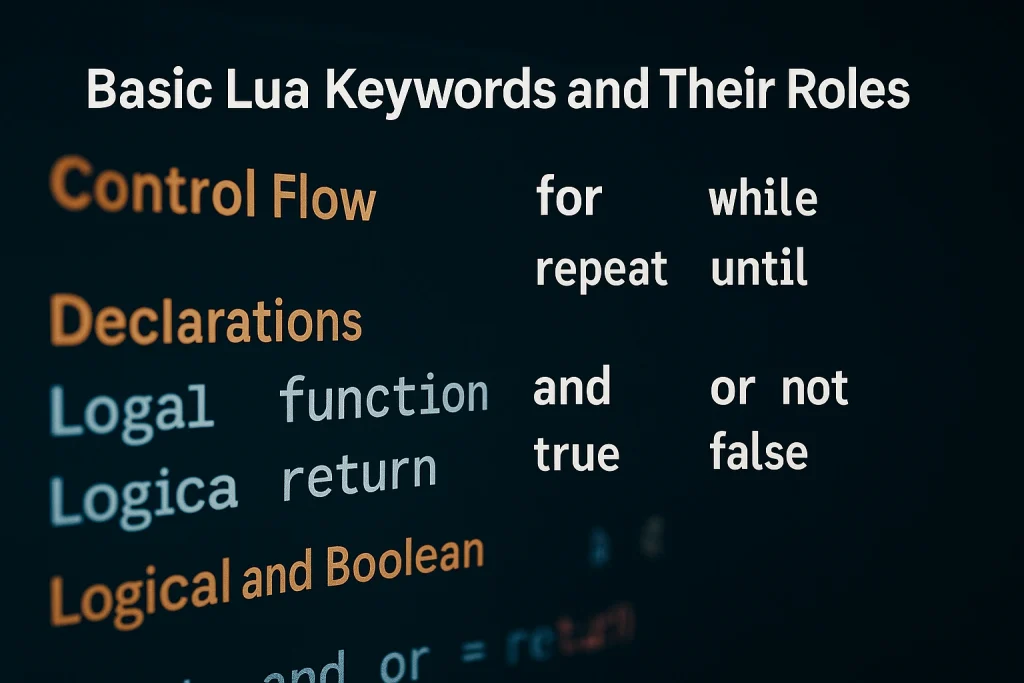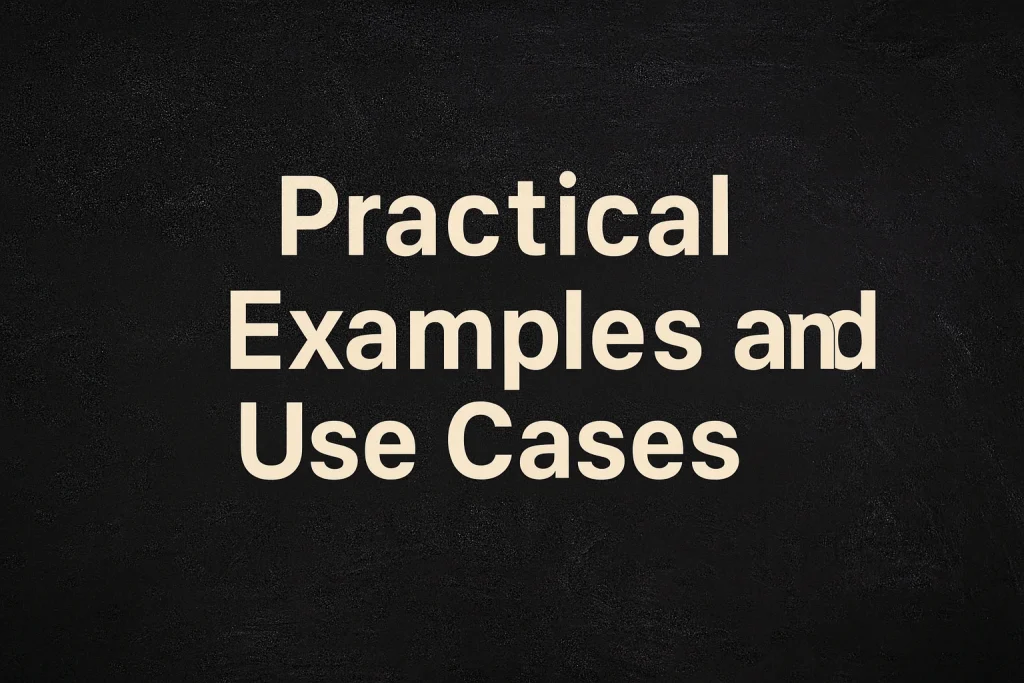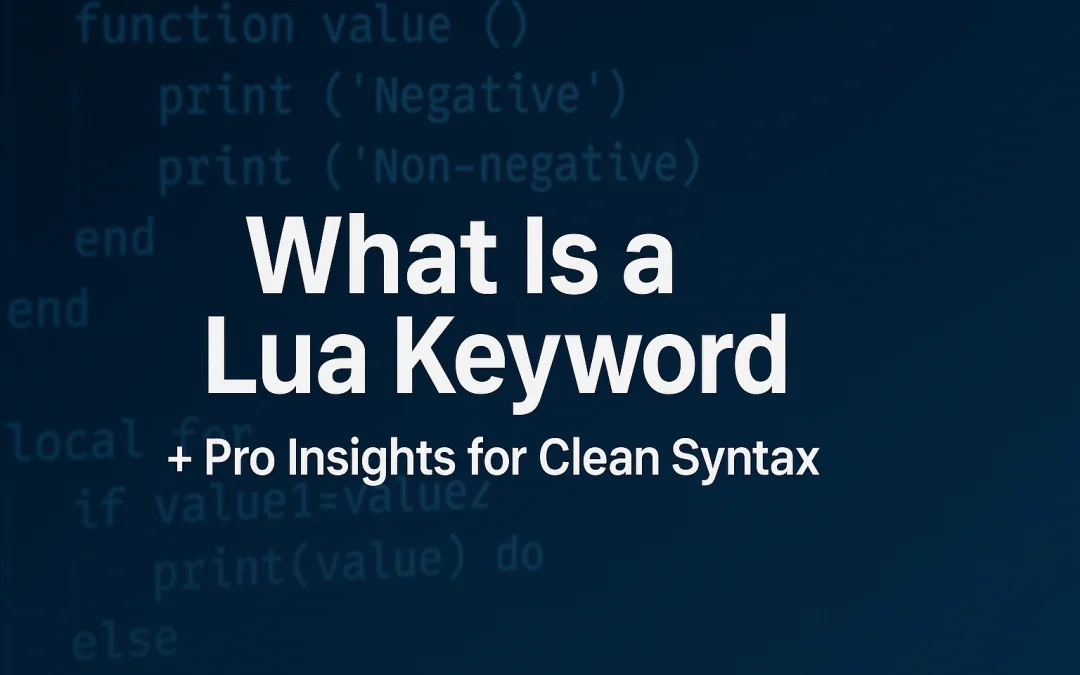When learning Lua, one of the first questions new developers ask is “what is a lua keyword?” The answer is simple but powerful: a Lua keyword is a special reserved word that forms the foundation of the language’s syntax. These keywords cannot be repurposed as variable names, function names, or identifiers because they carry specific meanings that tell the Lua interpreter how to execute code.
In this guide, you’ll not only discover what is a lua keyword, but also how to use them effectively, avoid common mistakes, and apply them in real-world coding situations. We’ll cover every keyword with examples, explore their role in control flow, looping, declarations, and logic, and even look at how they work behind the scenes.
By the end of this article, you’ll have a solid understanding of Lua keywords and know exactly how to use them for clean, efficient, and error-free Lua programming.
1. What Is a Lua Keyword?

1.1 Definition and Importance
So, what is a lua keyword? In plain terms, a Lua keyword is a reserved word built into the Lua programming language. Unlike ordinary words or identifiers, a keyword has a fixed meaning. You can’t redefine or reassign it. For example, if will always begin a conditional statement, and function will always declare a function.
This restriction ensures consistency across all Lua programs. No matter who writes the script, the keyword always performs the same task. This is why you cannot do something like:
Instead, you must pick a valid identifier name:
1.2 Reserved Words vs Identifiers
An identifier in Lua refers to user-defined names for variables, functions, or tables. Keywords, however, are reserved and cannot be repurposed. Lua is case-sensitive, meaning And is different from and. While and is a keyword, And could be a valid identifier.
Understanding the difference between reserved words and identifiers prevents frustrating syntax errors and helps you write code that the Lua interpreter can parse without issues.
Reference: Lua Manual – Reserved Words
2. Basic Lua Keywords and Their Roles

2.1 Control Flow Keywords
Control flow in Lua depends heavily on keywords such as if, elseif, else, then, and end. These are used to build decision-making structures.
local temperature = 25
if temperature < 0 then
print(“Freezing”)
elseif temperature < 20 then
print(“Cold”)
else
print(“Warm”)
end
Here, if begins the block, elseif and else handle alternatives, then introduces the consequence, and end closes the block. Forgetting end results in an error.
2.2 Looping Keywords
Lua provides for, while, repeat, until, in, and do to control iteration.
Numeric for loop:
Generic for loop:
Repeat-until loop:
These keywords give Lua the ability to handle repetitive tasks elegantly.
2.3 Declaration Keywords
The local, function, and return keywords are fundamental for defining variables and functions.
-
localkeeps variables/functions scoped to a block. -
functiondeclares a reusable block of code. -
returnexits from a function with a value.
These keywords ensure modular, organized Lua code.
2.4 Logical and Boolean Keywords
Lua includes logical operators: and, or, and not, as well as boolean constants: true, false, and nil.
-
nilrepresents the absence of a value. -
trueandfalsehandle conditions. -
and,or,notcombine logical checks.
3. Why You Should Care: Common Mistakes & Best Practices

3.1 Misuse of Keywords as Identifiers
One of the most common mistakes is trying to name variables using keywords. Always avoid this.
3.2 Scoping Mistakes with local
Another frequent issue is omitting local, which makes variables global unintentionally.
Best practice: always declare with local unless global is intentional.
3.3 Forgetting end
Every if, while, and function must close with an end. Missing one breaks the interpreter.
4. Practical Examples and Use Cases

4.1 Understanding “what is a lua keyword” in Context
A keyword is the language’s building block. Consider:
Here, local and print are not just words—they are keywords that instruct Lua.
4.2 Control Flow Example
4.3 Loop Example
4.4 Functions and Return Example
This showcases local, function, if, else, return, and recursion.
5. Advanced Insights: Syntax vs Semantics

5.1 Syntax vs Semantics
-
Syntax = rules for how code is written.
-
Semantics = meaning of the code.
Keywords enforce both. Example:
The syntax (if … then … end) is enforced by keywords. The semantics (true condition) determines execution.
5.2 Interpreter Behavior
The Lua interpreter scans code, spots keywords, and knows exactly how to parse them. Without keywords, the interpreter wouldn’t know when a function begins, when a loop ends, or how to evaluate logic.
This is why keywords are untouchable—they anchor Lua’s design.
6. Real-World Applications of Lua Keywords
-
Game Development (Roblox, Love2D):
Lua keywords manage character actions, physics, and AI logic. -
Embedded Systems:
Lightweight Lua code uses keywords likeif,while, andforto control microcontroller routines. -
Configuration Scripting:
Tools like Nginx and Redis rely on Lua scripts with keywords to automate tasks.
GeeksforGeeks – Lua Programming
7. Complete Keyword Reference Table
| Category | Keywords |
|---|---|
| Control Flow | if, then, else, elseif, end |
| Looping | for, in, do, while, repeat, until |
| Declarations | local, function, return |
| Logic & Boolean | and, or, not, true, false, nil |
8. Frequently Asked Questions
Q1: What is a Lua keyword in one sentence?
A Lua keyword is a reserved word with a predefined meaning that cannot be used as an identifier.
Q2: How many keywords does Lua have?
Lua has 21 official keywords in version 5.4.
Q3: Can I create my own keywords?
No, but you can create functions and variables (identifiers).
Q4: Why is nil a keyword?
Because it represents the absence of value, making it special in Lua’s logic.
Q5: What happens if I misuse a keyword?
The Lua interpreter throws a syntax error and stops execution.
Conclusion
You now know what is a lua keyword, why it matters, and how it’s used to define the structure of every Lua program. From control flow with if and else to loops with for and while, to declarations like local and function, keywords form the backbone of Lua scripting.
By mastering these keywords and avoiding common mistakes, you’ll write cleaner, faster, and more reliable Lua code. Whether you’re building games, scripting automation, or programming embedded systems, your journey with Lua starts by fully understanding its keywords.
Pro Tip: Bookmark the Lua Manual for quick reference.
More Info: confidenceit

